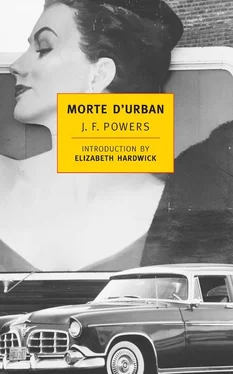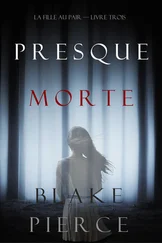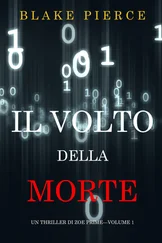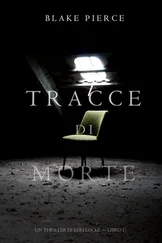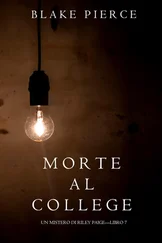“ Ho ly Paul!” said Monsignor Renton when he saw what he’d come for. “You look like you spent the day barking at the bottom of a well.”
AFTER A DRINK at Monsignor Renton’s (“Bourbon, Red, and no ice”), Father Urban was driven back to the Hill in the Imperial. His bag was heavy with wet clothing — how much Monsignor Renton didn’t know, for Father Urban hadn’t mentioned his earlier mishap. He was wearing his own damp underwear, shirt and trousers from Monsignor Renton, socks and shoes from Cox’s room (Cox was away, attending a convention of youth specialists), and a suede jacket from Box, to whom Monsignor Renton had explained, “It wasn’t so cold when Father Urban left the cloister.”
“Well, of course, it was no way for her to act,” Monsignor Renton said, on the way to the Hill, “but if you ask me, she’s still the best of the lot.” “You may be right,” said Father Urban. He had told Monsignor Renton that Sally had left the castle in a huff, and, thinking of her honor as much as his own, he had let Monsignor Renton assume that Norris had been there at the time. Monsignor Renton was under the impression that Norris was still there. “You say there’s a place to sleep?” “Oh yes.” “Well, I suppose he’ll be all right then. She’ll cool off by morning.” “Oh yes.” “I wouldn’t take it so hard, if I were you. It may not have been your fault at all. In fact, I’d say it was a lovers’ quarrel, and you got caught in the middle.” “You may be right.” “If I’d been in your shoes, though, I would’ve stayed with Norris.” “Yes, well, I was in a hurry to get home.” “Good shoes, were they?” “Pretty good.” “Too bad. Say, I shot one of those Dunlop Maxfli’s today. Ever use ’em?” “I have, yes.” “Good ball.” “Yes.” “And how was the fishing up north?” “Not too good.” “I’m told you have to go farther north, almost to the Arctic Circle, if you want to catch anything.” “You may be right.” “Coming back to the other, though, I’d say the moral, if any, is stay away from people.”
Father Urban told Wilf that Billy and Paul had left rather suddenly, no more than that, but that was enough for Wilf. According to Wilf, traveling by car was faster than going by train, or even by plane, from remote points. When Wilf asked how the fishing had been, Father Urban said, “Lousy.” Wilf said it had been unusually good at home, that Brother Harold had frozen about seventy pounds in the past two days, including one walleye, an eight-pound lunker.
“You should’ve stayed here,” Wilf said.
Father Urban went around with a numb feeling, nursing a cold. He preached when asked, but not too well. He passed up an important funeral in Great Plains. In general, he neglected his contacts. Had there been any occasion to do so, he could not have said “Hello— hello! ” with gusto. He wasn’t himself. He even stayed away from the course.
Naturally, he wondered what had become of the station wagon, and thought of various heartbreaking ways in which Billy might dispose of it, or render the Order’s title to it useless. For two weeks, though, he held Wilf off, with Wilf’s help. Traveling (Wilf said) was much faster by car than by train, or even by plane, from remote points, and “business,” which had made Billy hurry back to Chicago, was keeping him there and holding him incommunicado. Toward the end of this period, however, Wilf did say it was lucky they hadn’t traded in the pickup truck.
And then a notice came from the Minnesota State Highway Department starting that the Wisconsin State Highway Department had reported a station wagon — Rambler, brown, registered in ownership of Order of St Clement, Duesterhaus, Minnesota — parked at Chicago & North Western R.R. Station, Ashland, Wisconsin. Keys, found in car, in possession of Police Department, Ashland, Wisconsin.
“What a man!” said Wilf. “He forgot all about it!”
When Father Urban heard the news, his heart gave a little leap, and a little voice said, “All is not lost!” But another little voice said, “Aw, shut up!”
The next morning, Brother Harold was dispatched to Ashland by bus. He was carrying his lunch and a letter for the Chief of Police, a letter in which Wilf explained everything.
And that morning Father Urban joined Jack in the garden where they toiled at getting in the “swedes” and other root crops. Father Urban, who hadn’t set foot in the garden since his picture was taken for the brochure, was trying to lick his cold, trying to sweat it away. His cold had hung on, and lately it had descended into his chest from which, from time to time, there now came odd noises, as if he were digesting his lungs. Soon after he began working in the garden, he realized how weak he was, and was ready to quit, but he didn’t, and presently he swooned dead away.
When he came to, Jack walked him to his room. Wilf called the doctor. That afternoon, Father Urban was admitted to the hospital in Great Plains and placed in an oxygen tent. That was the last he saw of himself for a while. Crazy dreams — his father raking a sand trap that wouldn’t stay raked, his mother playing the square piano by the light of the swan’s-head gas jet that had been in the kitchen, over the pump. He spent a great deal of time back in Illinois, in a land of pumps, cisterns, grape arbors, outhouses, lush cemeteries, and rain. The rain went on and on, and then it stopped. When he came to, though, it was there outside his window.
“No,” said Monsignor Renton, his first visitor. “We haven’t had any rain to speak of until today. Actually, it began late last night. I’d say you missed the best week of the year. You won’t see another like it until next year.”
“If then,” said Father Urban. That was how he felt.
Four days later, he was strong enough to return to the Hill, but he was still pretty weak. His headaches were still with him, and had joined forces with whatever ailed him gastrically, so that they were now sick headaches. He had no appetite for food, or anything. Even reading was too much for him. When he was up — he was in and out of bed all day — he just sat in his chair (again on loan to him from the Rec Room) and watched the wind and the rain strip the trees, all but the red oak, and wondered how many old paupers before him had watched the coming of winter from that window.
There hadn’t been much mail for him when he got out of the hospital, a bill (forty-two dollars) from Henn’s Haven, with a note at the bottom, “Just a friendly hello from the north woods, and that goes double for Mother. Deer season starts Nov. 11 but still time to make reservations if you hurry. Get up a party. Group rates. As always, Dad Henn”; a letter from Father Excelsior saying he’d written, as advised, to the address in Des Moines, but had received no reply — any other suggestions?; and a ballot from the Novitiate.
Father Urban tried to discuss the election with Jack, who, with Rex, visited him in the evening, but it wasn’t easy. About all Jack would say was that Wilf seemed to think it would be Father Boniface again. “He would,” said Father Urban. “Or,” said Jack, “Father Siegfried.” “Yeah?” said Father Urban. “I’d say we need more of a change than that. An older man, I’d say. Look at the job Pope John’s doing.” Father Urban, in a futile gesture, marked his ballot for Father August, and would’ve advised Jack to do likewise if he hadn’t already voted. “I hope you didn’t go for Boniface.” Jack didn’t respond at all to this, and thus adhered to the letter of the Rule. The Holy Founder, who had lived for some years in Rome, and had seen plenty of dirty pool in his day, was very strict on that point — no politicking, fratres.
Читать дальше
